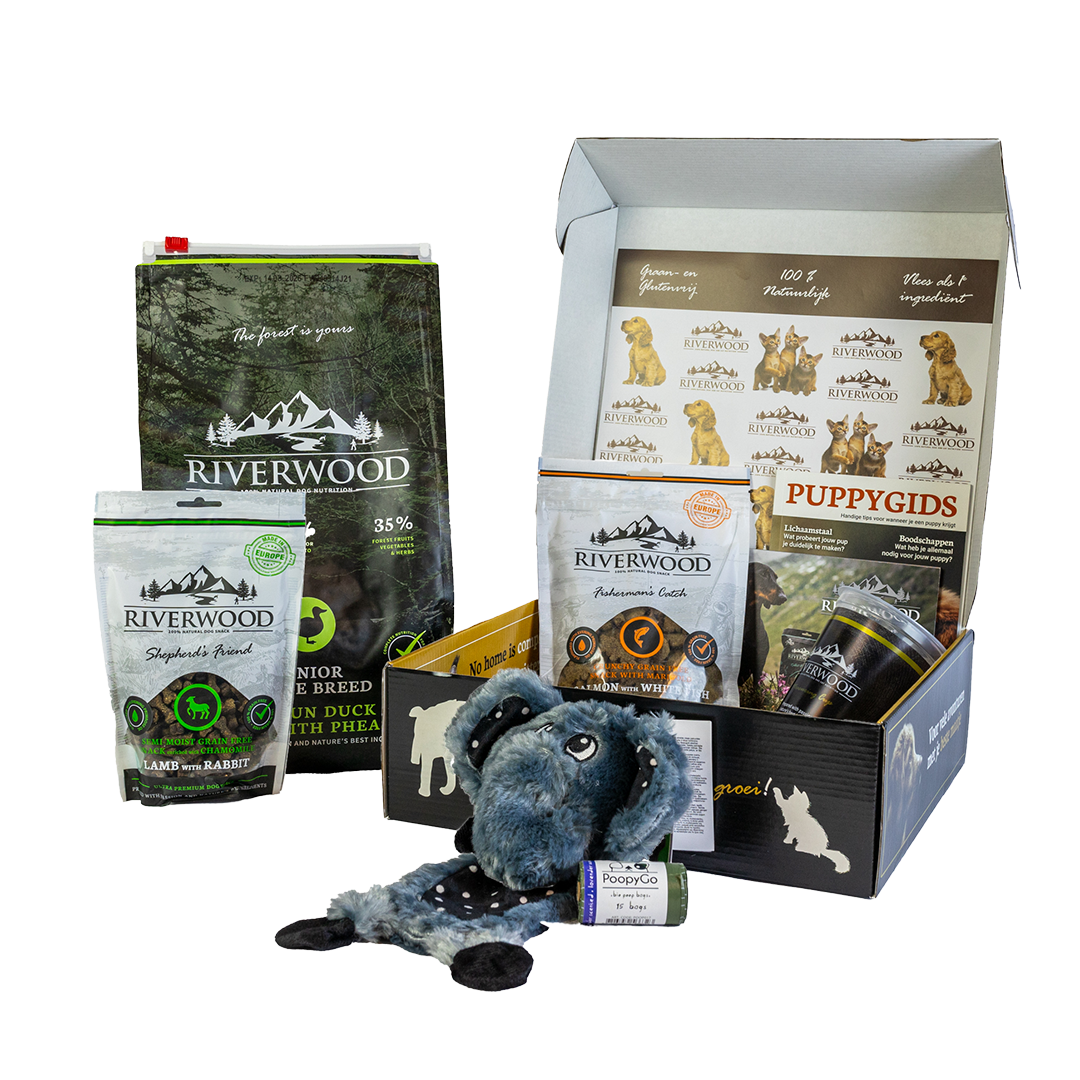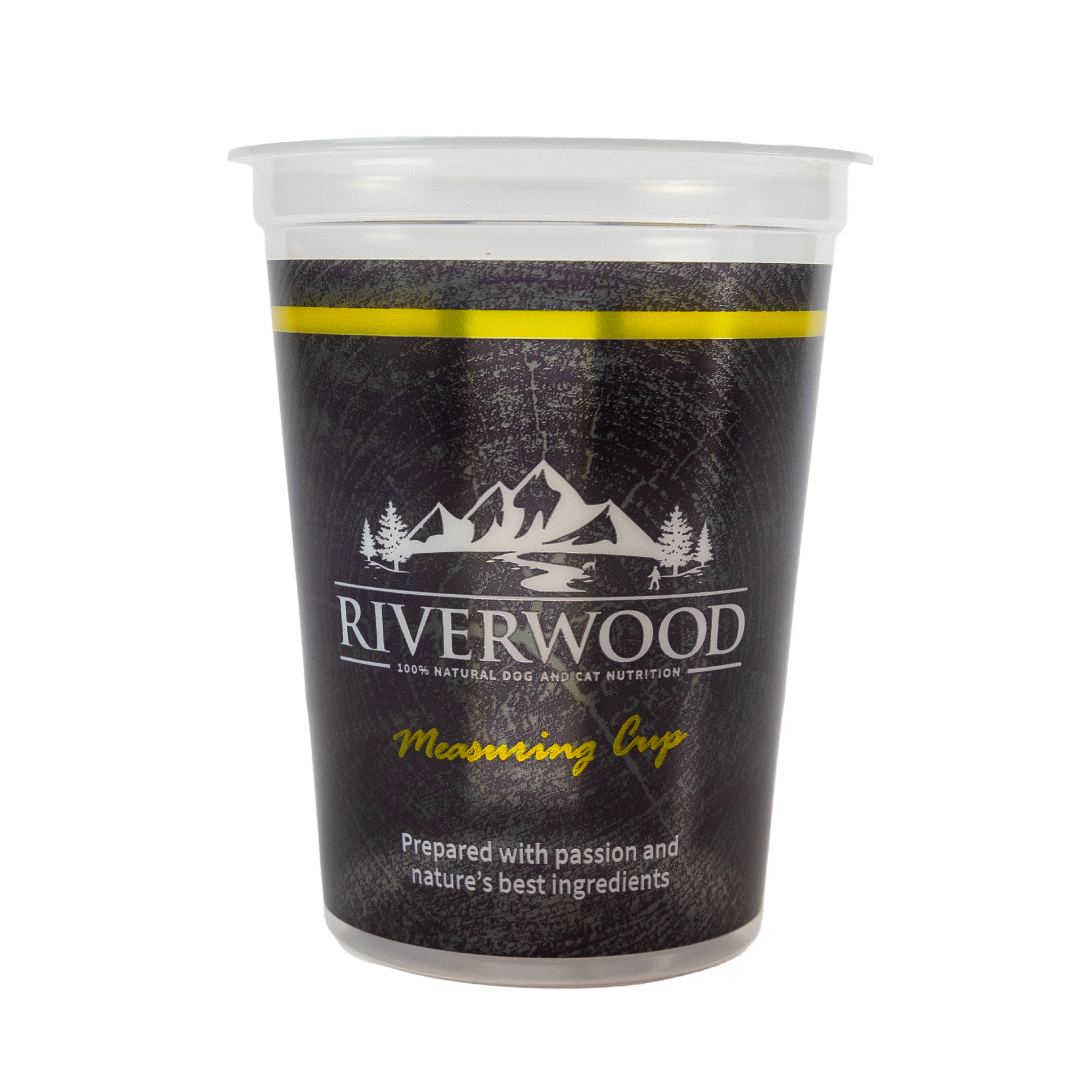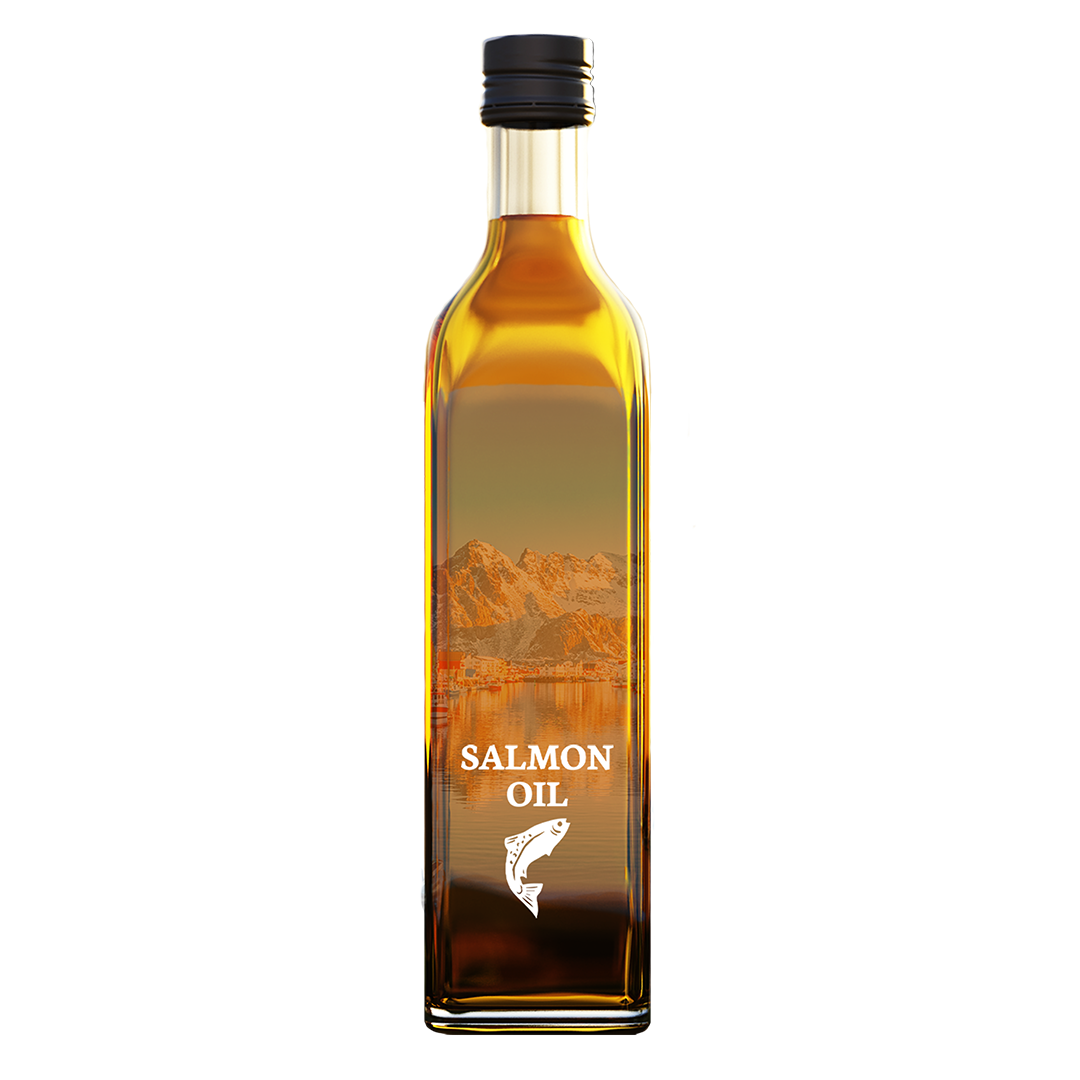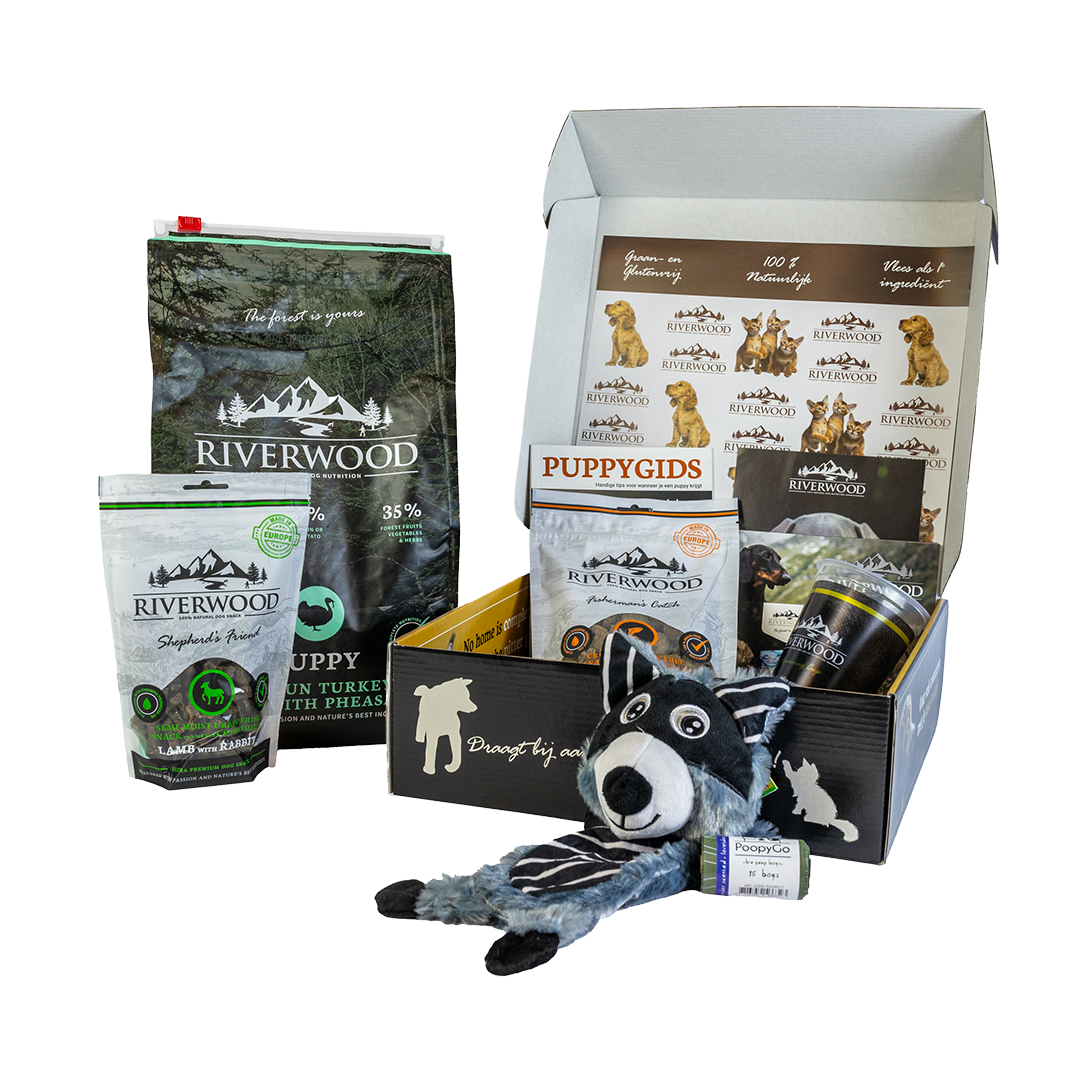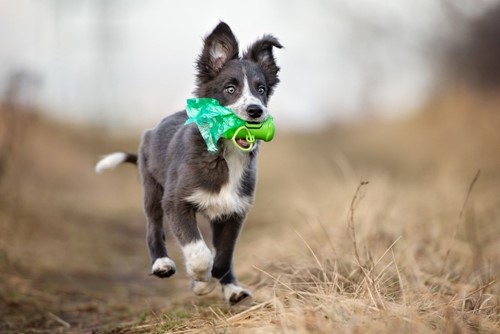
What should you feed a dog with diarrhea?
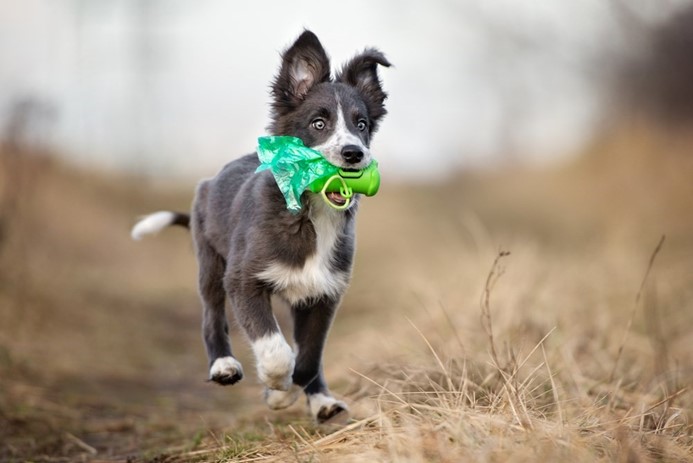
What is diarrhea?
Diarrhea is when a dog has thin or watery stools for one or more days instead of solid, firm stools. A dog with diarrhea may also have stools more often than normal and in quicker succession. Often diarrhea comes on suddenly where a normally well housebroken dog may not be able to hold its stool and thus does it in the house out of necessity. In most cases, diarrhea is a natural response of the dog's body, where the body is trying to cleanse the intestines. A dog may suffer from acute diarrhea. In this case, a dog suffers from diarrhea for only one to a few days and in most cases it goes away on its own. When it persists longer, we speak of chronic diarrhea.
Intestinal disorders are common in dogs and although diarrhea is the most common intestinal disorder in dogs, diarrhea is a result of another underlying problem. An example of a cause of acute diarrhea could be diet, where the dog is not (or no longer) digesting the food it is given properly. Other causes could be parasites, rotten food, a viral infection or a swallowed (non-digestible) object. Chronic diarrhea can be a result of a food allergy or intolerance, where the dog reacts allergically to one or more ingredients in the food. Other examples of causes of chronic diarrhea include organ problems (to the pancreas and liver, for example) or tumors in the stomach and/or intestines. So it is important to find out the cause of your dog's diarrhea in order to treat it appropriately.
When should you go to the veterinarian?
When your dog has acute diarrhea, there is no need to consult the veterinarian immediately. Think of it this way; when we ourselves have diarrhea once, we don't immediately go to the doctor either.
If it is chronic diarrhea and if the dog also shows other symptoms, it is a different story. Contact your veterinarian if, in addition to the diarrhea, your dog has a fever, is lethargic, has blood in the stool or no longer wants to eat or drink and has dehydration symptoms. In fact, these symptoms combined with diarrhea can be so intense for a dog's body as to be life-threatening, so taking action quickly is necessary. Also, when in doubt, always call the veterinarian. As cliché as it sounds, it really is true; it's better to call the vet once too often than too little....
Cooked chicken with rice is outdated
It is often advised to give dogs with diarrhea boiled rice with chicken because it is said to be easily digestible and gives the dog's intestines a chance to calm down. Actually, this is just a strange course of action. After all, a dog's gastrointestinal tract needs 6 to 8 weeks to get used to new food, so why would you completely change your dog's diet if your dog's intestines are already upset?
Besides the fact that a dog needs time to get used to new food, a dog's body can also do pretty little with rice. Dogs are unable to digest large amounts of rice and, in addition, rice also contains little nutritional value.
So what can a dog with diarrhea eat?
But what can you give a dog with diarrhea? Choose easily digestible food with high-quality nutrients, but don't suddenly switch types of food. Does your dog normally get fresh meat or wet food? If so, choose meat with an easily digestible protein source, such as turkey or venison. Does your dog's daily menu consist of kibble? If so, we recommend that you divide the amount of kibble into smaller portions and give them to your dog spread throughout the day (for example, every 2-3 hours). In addition, skip giving snacks and other extras for a while.
Riverwood Adult Vension & Lamb with Rabbit dog kibble contains easily digestible sources of protein. Several varieties with easily digestible protein sources of the Riverwood Mono Protein canned foods are also available in our assortment. Both the Riverwood Deer & Lamb with Rabbit variant dry food and the different varieties of easily digestible Riverwood Mono Protein wet foods are suitable for dogs who have diarrhea.
Products

Average rating of 4.5 out of 5 stars

Average rating of 4.6 out of 5 stars
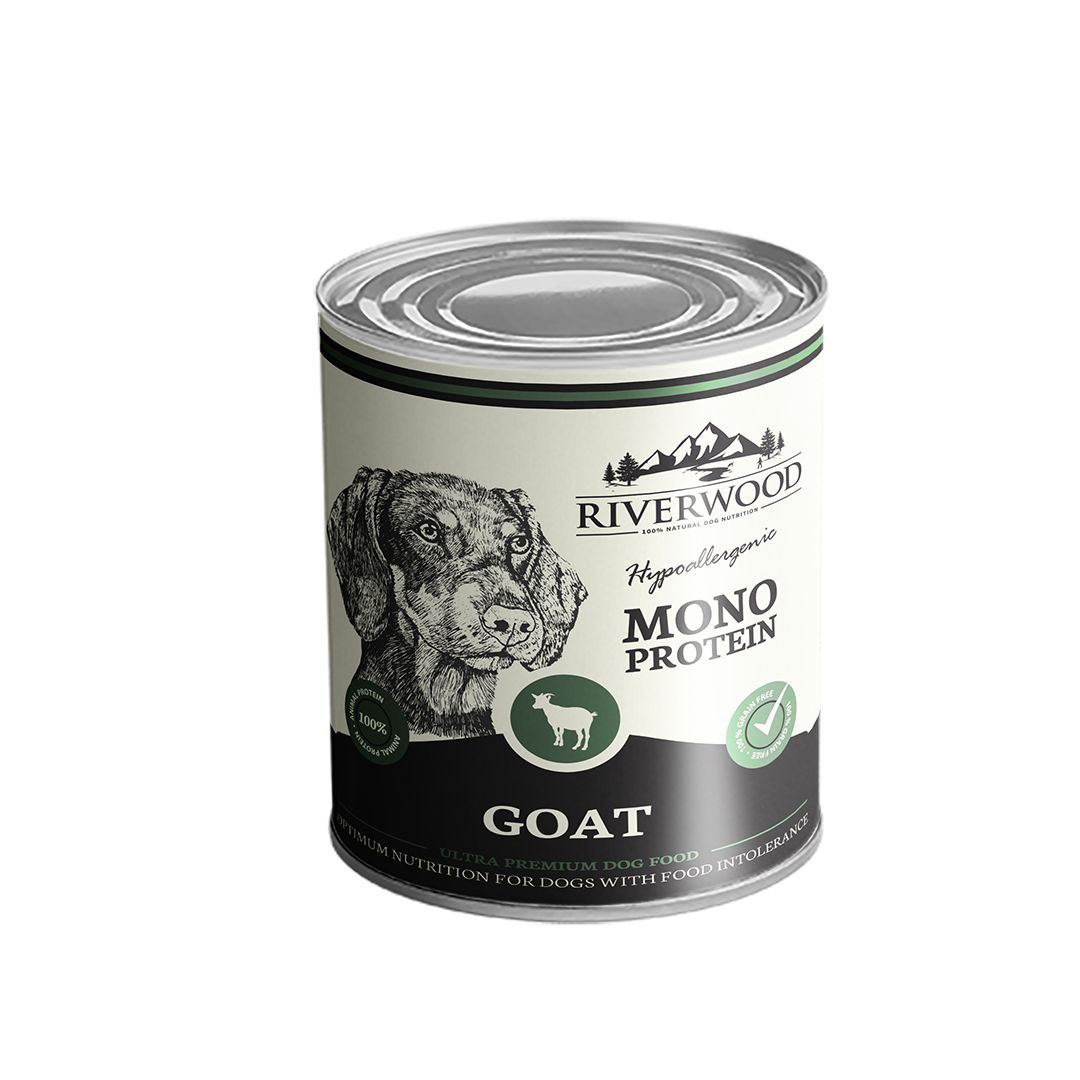
Average rating of 4.9 out of 5 stars
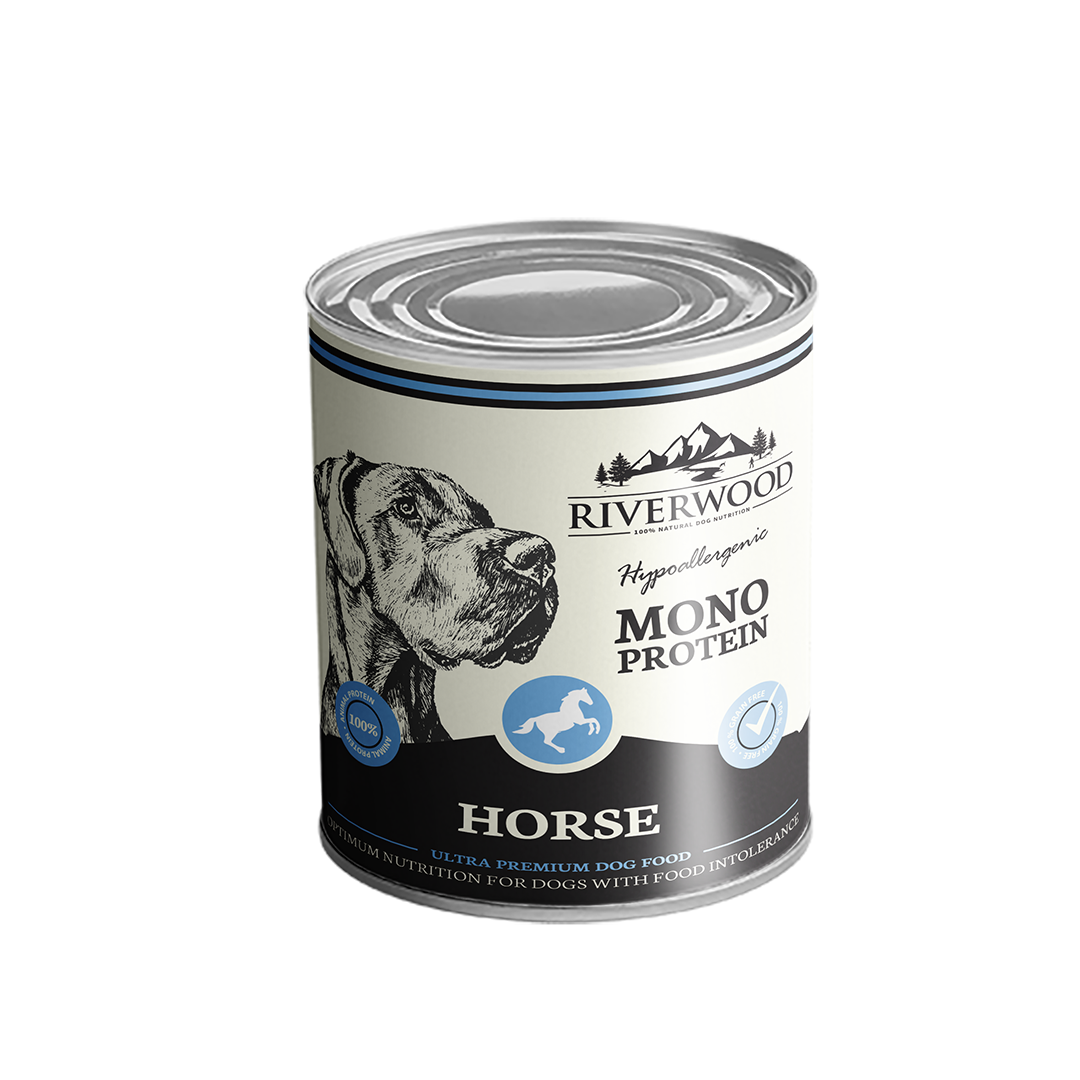
Average rating of 4.9 out of 5 stars
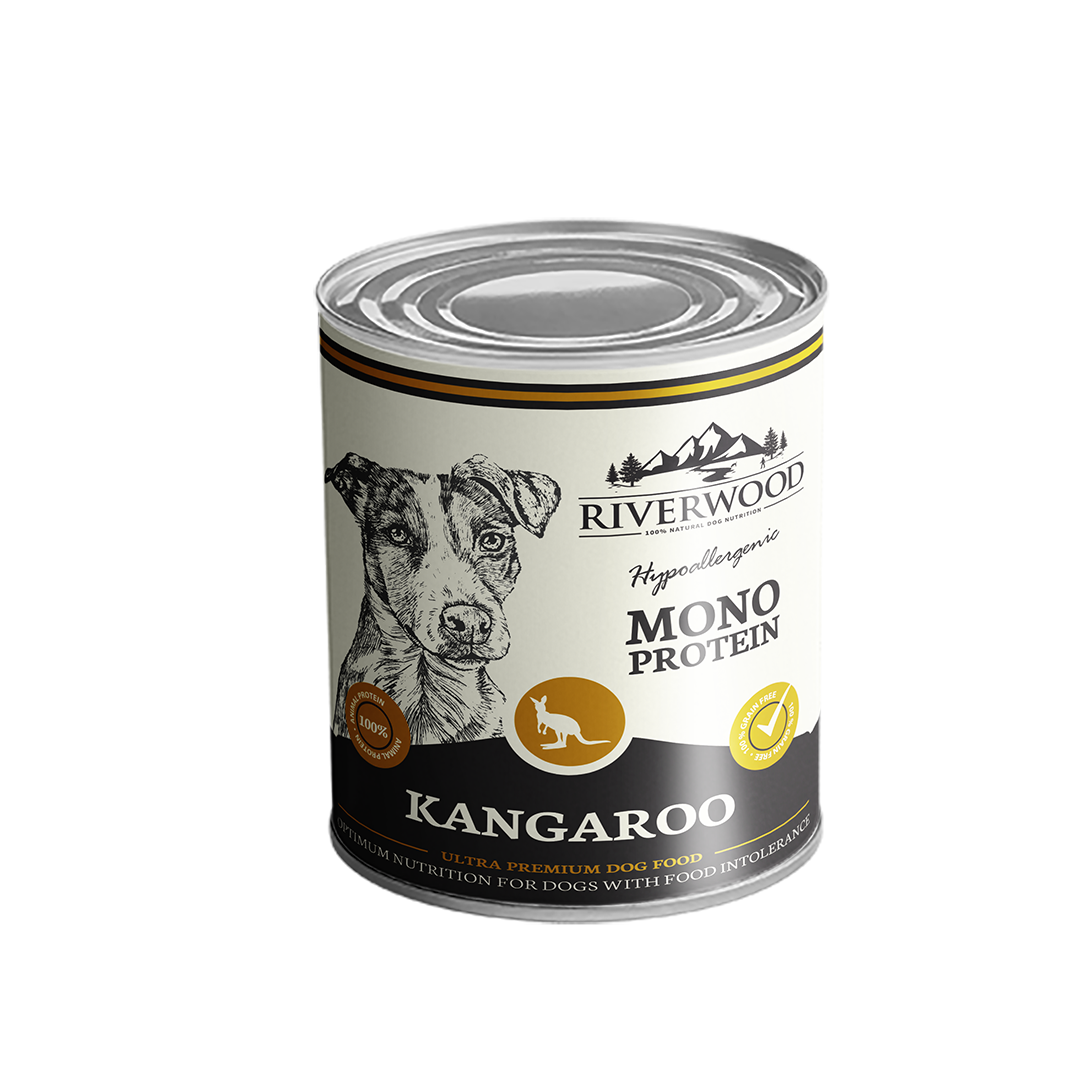
Average rating of 4.8 out of 5 stars
Fasting your dog
Is your dog still happy and active and has no other health issues, but continues to suffer from diarrhea despite being fed food with easily digestible protein sources? Then you can also let the animal fast. Do this always in consultation with a veterinarian, because fasting is not an option for all dogs.
With fasting you give the dog 12 to 24 hours no food, so that the intestines of the dog get the chance to come to rest. Do you think this is too long for your dog? Then you can also choose to let the dog fast for 6 to 12 hours. After this time, you can feed the dog small portions of food again.
Please note that puppies and senior dogs should not be fasted. Fasting is also not advised in dogs of smaller sizes, because smaller dogs have fewer reserves to cope with fasting.
Beware of dehydration
Every dog has diarrhea from time to time, so it's not something you need to worry much about right away. However, it is important that the dog continues to drink well because diarrhea can cause dehydration of the body. Does the diarrhea last longer than 5 to 7 days, is the stool water thin, does the dog have a fever or does he no longer want to eat and drink? If so, contact your veterinarian as soon as possible.
Does your dog suffer from persistent diarrhea symptoms and therefore want to switch to a different food? Then order a trial pack: an inexpensive way to get acquainted with our delicious foods! Fill in the questions and find out which variant suits your dog best. Order a sample pack here.
Products

Average rating of 4.8 out of 5 stars

Average rating of 4.8 out of 5 stars

Average rating of 4.7 out of 5 stars

Average rating of 4.8 out of 5 stars

Average rating of 4.8 out of 5 stars

Average rating of 4.9 out of 5 stars






